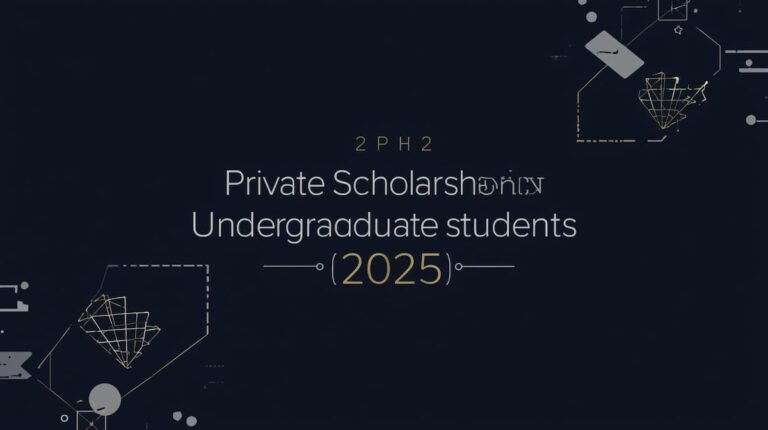In India, lakhs of college students miss out on scholarship opportunities every year—not because they’re not eligible, but because they believe in common myths or don’t ask the right questions. From test waivers to fairness in selection, students often feel overwhelmed by incomplete or incorrect information.
This blog clears the confusion. Below are the top FAQs about scholarships for college students, along with myth-busting facts for 2025–26 to help you apply with confidence and clarity.
🎓 Frequently Asked Questions (FAQs)
✅ 1. Who can apply for scholarships in college?
Any student enrolled in a recognized UG course—BA, BCom, BSc, BTech, MBBS, Law, etc.—can apply, provided they meet specific criteria like income limit, academic merit, or category (SC/ST/OBC/EWS/Girls/Disabled).
📌 There are also general scholarships open to all merit-based applicants.
✅ 2. Can I apply for multiple scholarships at the same time?
Yes, you can apply to multiple scholarships. However, you can only accept one major scholarship (i.e., full tuition + stipend) at a time. It’s legal to receive one state-level + one private scholarship, as long as the total doesn’t exceed actual expenses.
📌 Always disclose other grants in your application to avoid disqualification.
✅ 3. Is an income certificate compulsory for all scholarships?
Most need-based scholarships require income proof, but merit-only scholarships (like INSPIRE, Tata, DAAD) may not. Still, it’s a good practice to keep an income certificate ready with proper verification (issued within 6 months).
✅ 4. Can private college students apply for scholarships?
Yes! While some government schemes are reserved for government college students, there are dozens of private and NGO-funded scholarships for students in private institutions (e.g., Buddy4Study, HDFC Parivartan, FAEA, Vidyadhan).
📌 Always check whether your college is on the approved list before applying.
✅ 5. Can I apply without entrance exam scores (like NEET, JEE, IELTS)?
Yes. Many scholarships don’t require any test scores—especially for general UG degrees (BA, BCom, BSc). Also, several foreign universities now waive IELTS/GRE for Indian students, especially if:
- Your previous education was in English
- You apply through special India-specific scholarship schemes (e.g., Fulbright, MPOWER, Erasmus)
🎯 So the “no IELTS = no scholarship” myth is FALSE.
✅ 6. What are the chances of selection? Is it fair?
Scholarship selection is based on merit, eligibility, and documentation. While competition is high, shortlisting is mostly done digitally, based on:
- Academic scores
- Family income
- Category (SC/ST/OBC/EWS/PwD)
- Timely document submission
✅ Selection is fair—just ensure your application is complete, verified, and submitted before the deadline.
✅ 7. Are SOPs and essays really important?
Absolutely. For private, foreign, and high-value scholarships, your Statement of Purpose (SOP) often decides the outcome. Use it to show your story, struggles, goals, and impact.
📌 Good SOP = Higher selection chance, especially if academic scores are average.
✅ 8. Do I need a bank account in my name?
Yes. Most scholarships, especially through NSP, SSP, MahaDBT, etc., require the student’s own bank account linked with Aadhaar and mobile number. Joint accounts with parents may be allowed for minors (under 18).
✅ 9. What happens if I fail a semester or drop out?
Scholarship continuation is usually subject to academic performance. If you fail or drop out:
- You may lose the scholarship
- You might have to repay unused portions (for some international scholarships)
- Some programs allow deferral or reinstatement, if valid reason (e.g., health)
✅ 10. Can I apply again next year if I’m not selected?
Yes. Many scholarships allow fresh applications every year of your course. So if you missed out in 2025–26, you can still apply in 2026–27 with updated documents and scores.
🎯 Persistence pays—don’t give up if you’re not selected once.
❌ Top 5 Scholarship Myths – Debunked
| Myth | Truth |
|---|---|
| ❌ Only science/engineering students get scholarships | ✅ Arts, commerce, law, design, humanities students also have many options |
| ❌ Scholarships are only for toppers | ✅ Many are need-based or reserved for community/minority/women |
| ❌ Private college students aren’t eligible | ✅ Several schemes accept private college applicants |
| ❌ You can’t get more than one scholarship | ✅ You can combine multiple partial scholarships (as long as rules allow) |
| ❌ Selection is biased or random | ✅ Most scholarships have clear digital evaluation criteria |
📣 Pro Tip: Don’t Self-Reject!
Many students don’t apply thinking “I won’t get it.” But the truth is:
- Most scholarships get fewer complete applications than expected
- Missing documents, wrong IFSC, or late SOPs disqualify many
- If you submit on time with correct documents, your chances rise
So apply. Even if you think you’re not 100% perfect.
🧭 Final Words
Understanding how scholarships for college students really work helps you save both money and time. As the 2025–26 season opens up, don’t fall for myths—apply smartly, truthfully, and early.
Start now, make a calendar, prepare a winning SOP, and keep checking state portals, scholarships.gov.in, and trusted private platforms like Buddy4Study for live updates.


